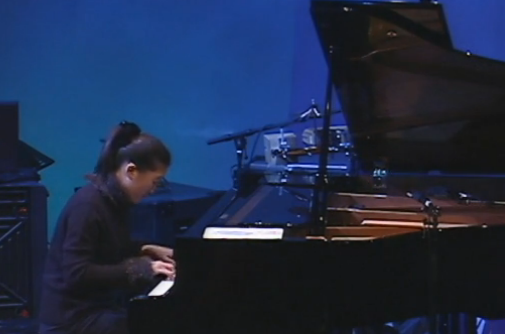Thank you very much. Like the speaker before me -- I am a TED virgin, I guess. I'm also the first time here, and... I don't know what to say!
非常感謝大家,和前面一位演講人一樣,我是...大概是TED處女。我也是第一次到這里,不知道該說什么。
I'm really happy that Mr. Anderson invited me. I'm really grateful that I get a chance to play for everyone.
我真的很高興安德森先生邀請了我,我對有機會給大家演奏感到十分榮幸。
And the song that I just played was by Josef Hofmann. It's called "Kaleidoscope."
我剛才彈的那首歌是約瑟夫·霍夫曼的作品,名字叫《萬花筒》。
And Hofmann is a Polish pianist and composer of the late 19th century, and he's widely considered one of the greatest pianists of all time.
霍夫曼是一個19世紀后期的波蘭鋼琴家和作曲家,他被廣泛認為有史以來最偉大的鋼琴家之一。

I have another piece that I'd like to play for you. It's called "Abegg Variations," by Robert Schumann, a German 19th-century composer.
我想給你們彈另一首作品,名字叫《阿貝格變奏曲》,羅伯特·舒曼作曲,一個19世紀德國作曲家。
The name "Abegg" is actually A-B-E-G-G, and that's the main theme in the melody.
阿貝格這個名字─實際上是A-B-E-G-G,這是旋律的主題。
That comes from the last name of one of Schumann's female friends. But he wrote that for his wife.
是一個舒曼女性朋友的姓,但他為他的妻子寫的這首。
So actually, if you listen carefully, there are supposed to be five variations on this Abegg theme.
所以,實際上如果你認真聽,應該可以聽到有阿貝格主題的五個變奏。
It's written around 1834, so even though it's old, I hope you'll like it.
它是在1834年左右寫的,所以即使有點老,我還是希望你們喜歡。











